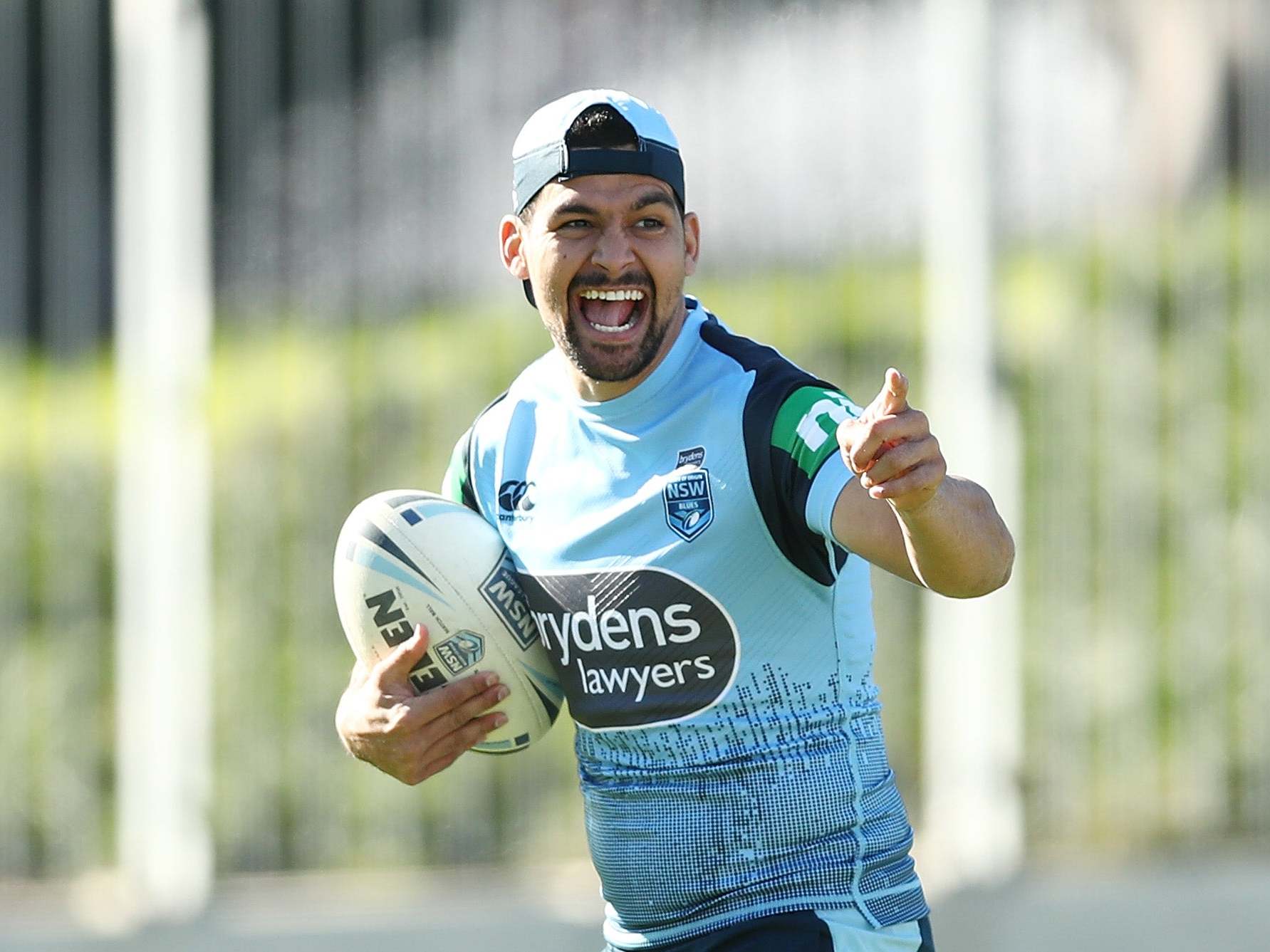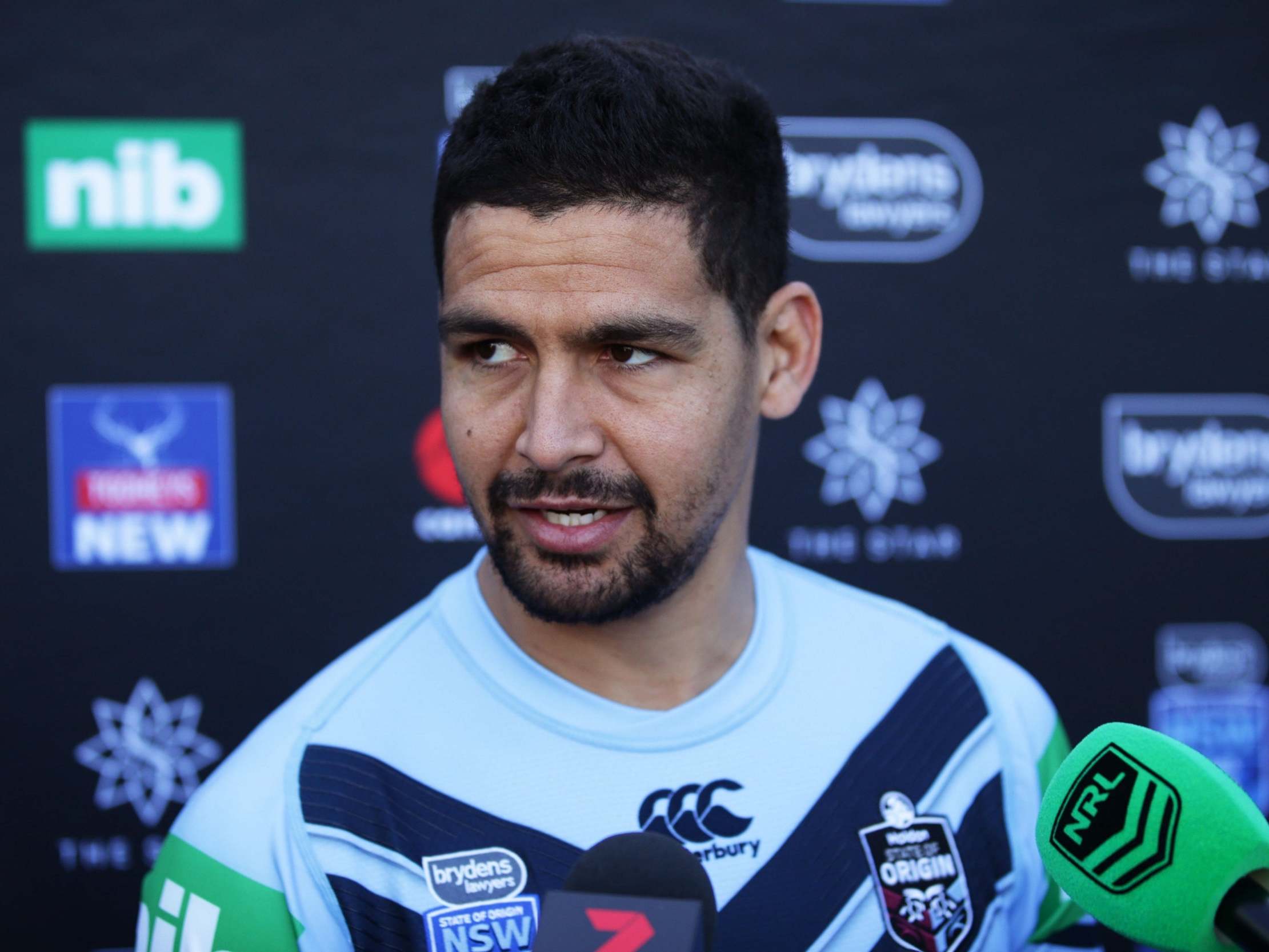Cody Walker: Aboriginal Australian rugby league player will not sing national anthem in silent protest
South Sydney Rabbitohs back is set to make his State of Origin debut next week

Your support helps us to tell the story
From reproductive rights to climate change to Big Tech, The Independent is on the ground when the story is developing. Whether it's investigating the financials of Elon Musk's pro-Trump PAC or producing our latest documentary, 'The A Word', which shines a light on the American women fighting for reproductive rights, we know how important it is to parse out the facts from the messaging.
At such a critical moment in US history, we need reporters on the ground. Your donation allows us to keep sending journalists to speak to both sides of the story.
The Independent is trusted by Americans across the entire political spectrum. And unlike many other quality news outlets, we choose not to lock Americans out of our reporting and analysis with paywalls. We believe quality journalism should be available to everyone, paid for by those who can afford it.
Your support makes all the difference.Aboriginal Australian rugby league player Cody Walker has said he will not sing the national anthem before the State of Origin opener in Brisbane next week but does not intend for his silent protest to spark a wider movement.
The South Sydney Rabbitohs player, set to debut for New South Wales in the annual series against Queensland, was also among players who declined to sing "Advance Australia Fair" before the start of the Indigenous All Stars game in February.
"I’m not pushing my views on anyone, it’s just how me and my family have grown up and how I feel," Walker told Fairfax media.
"I’ve already voiced my opinion, and I want to reiterate it's just my opinion."
Indigenous people, who number just 700,000 of Australia's population of 24 million, lived on the continent for an estimated 60,000 years before British colonists claimed possession in 1770.
Dispossessed of their sovereignty, Aboriginal Australians suffered a litany of human rights abuses including massacres and the forcible removal of children from their families by government agencies until late into the 20th century.
Walker's stance was backed by former Australia league great Johnathan Thurston, who said not enough discussion had come out of the silent protest before the All Stars game.
"The stand the team took on not singing the national anthem ... it was like it was just brushed over," Thurston, an indigenous player capped 38 times for the national Kangaroos side, told Fairfax.
"They did that and there wasn’t really any discussion to come out of that, even though it was a stand they took for themselves and their family.
"I thought it was great leadership by the team. Cody Walker came out after the game and said the national anthem doesn’t represent him or his family.
"We made a decision based on that and that was pretty much the end of it."

Walker's protest has raised echoes of Colin Kaepernick’s refusal to stand for the United States national anthem before NFL games, which sparked a national debate about racial injustice and drew the ire of US President Donald Trump.
New South Wales coach Brad Fittler said it was Taylor's decision whether he sung the anthem or not, while adding: "I'll be singing it."
Walker's stance comes during a renewed push for Aboriginal Australians to be given recognition in the Constitution, the nation's founding law.
The Australian Rugby League Commission, (ARLC) the sport's national governing body, said on Wednesday it had pledged its support for the "Uluru Statement," a 2017 manifesto drafted by indigenous leaders to establish a "First Nations Voice" in the Constitution.
"We look forward to walking together with our First Nations peoples towards a constitutionally enshrined voice in the Parliament," ARLC Chairman Peter Beattie said in a statement.
Reuters
Join our commenting forum
Join thought-provoking conversations, follow other Independent readers and see their replies
Comments